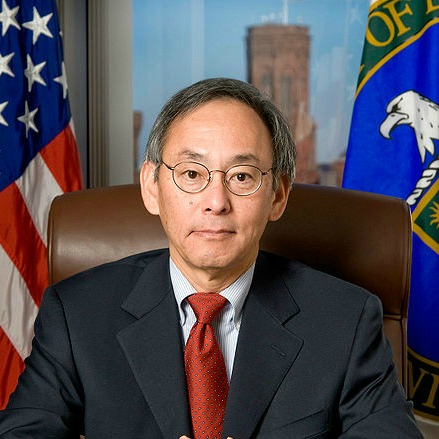 As widely expected, U.S. Department of Energy (DOE) Secretary Steven Chu has announced he will not serve a second term.
As widely expected, U.S. Department of Energy (DOE) Secretary Steven Chu has announced he will not serve a second term.
Chu, a Nobel Prize winner, said in a letter to his DOE colleagues that he will return to California to continue a career in academia but will remain in the post until the end of this month, when the Advanced Research Projects Agency – Energy (ARPA-E) Summit will be held.
Chu has been a strong proponent of renewable energy and clean technologies, and in his four years as DOE secretary, spearheaded several cleantech-related initiatives. During his tenure at the DOE, renewable energy production from wind and solar energy doubled.
Among his many accomplishments at the department, Chu was part of the committee that envisioned – and eventually, developed – ARPA-E, which was designed to support "high-risk, high-reward technology development." He also launched the SunShot initiative, which aims to reduce the full cost of utility-scale solar energy to $1/watt.
Chu also administered the DOE's loan-guarantee program, which was successful in advancing several cleantech companies and projects but drew harsh criticism after the failure of solar manufacturer and loan-guarantee recipient Solyndra.
Chu was also a strong supporter of smart-grid and electric-vehicle development and commercialization, and he was critical in the department's setting of appliance efficiency standards.
In announcing his resignation, Chu tasked the country with accelerating the development of clean energy technologies in order for the U.S. to continue its leadership and combat global climate change.
"The test for America's policymakers will be whether they are willing to accept a few failures in exchange for many successes," he wrote. "America's entrepreneurs and innovators who are leaders in the global clean energy race understand that not every risk can – or should – be avoided. Michelangelo said, "The greater danger for most of us lies not in setting our aim too high and falling short, but in setting our aim too low and achieving our mark.'"
"Our ability to find and extract fossil fuels continues to improve, and economically recoverable reservoirs around the world are likely to keep pace with the rising demand for decades," he continued. "The same opportunity lies before us with energy efficiency and clean energy. The cost of renewable energy is rapidly becoming competitive with other sources of energy, and the department has played a significant role in accelerating the transition to affordable, accessible and sustainable energy."



